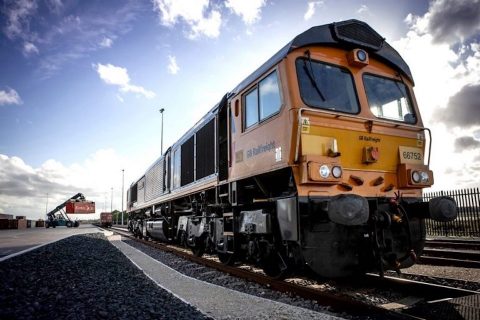HS2 commits further resources to rail freight operations

The company formed to build the UK’s high-speed rail project, HS2 Limited, has already made a sizeable commitment to moving construction materials by rail freight. Now, in the environmentally and politically sensitive Buckinghamshire corridor, the company says it will take an extra 28,000 trucks off the roads around the prosperous county.
Do you want to read the full article?
Thank you for visiting RailFreight.com. Become a member of RailFreight Premium and get full access to all our premium content.
Are you already a member?
Having problems logging in? Call +31(0)10 280 1000 or send an email to customerdesk@promedia.nl.





Fine
But 1.5 million heavy goods vehicles would no have been on the road if there was no HS2